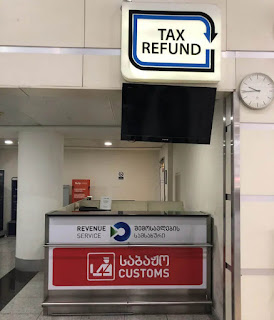Greece: Life in the Middle of the Crisis
Living in the middle of the crisis in Greece. The general price level was a surprise, especially as the wages are very low.
We stopped by in Greece for a few weeks before heading to the south and witnessed life in the middle of the financial crisis.
There is no denying that the country is suffering despite the bailouts and international donations. So far people have been denying the gravity of the problem but now the reality is slowly sinking in. One can clearly hear and feel the downbeat atmosphere when speaking with people.
Many have lost their jobs, working hours have been cut, and salaries are paid late if at all. Corruption is as wide-spread as in Finland, but not so cleverly hidden. Better off are those who know people in strategic positions and can find their way past the enormous queues in hospitals and get good jobs.
Immigrants on Transit
Many young people rely on their parents as there are no job opportunities for those who lack experience. The Greek are skilled in languages but hesitate to move abroad. Family ties are strong like in other Mediterranean countries and keep people sedentary.
There are plenty of illegal immigrants arriving from Afghanistan and Iraq through Turkey and heading towards Italy. The city of Patras is one of the hotspots for the refugees. They try to hide in trucks as Greece is only a transit country on their way to the real EU. We saw many of them trying to get into parked vehicles in front of the port in Patras. Most fail miserably as security measures have been tightened and the Italian side of the border in Brindisi looks like a prison camp with metal detectors, fences, and vehicle scanners.
What will be the future of Greece? Obviously the problems won’t be erased in a year or two. In Finland, there was a financial crisis in the 1990’s which took almost ten years to overcome. Taxes were raised, and at the same time the public services collapsed. After the crisis the country was clearly divided in two: the rich who could afford private services and the poor who were put into eternal queues.
There are also other countries in similar conditions waiting for discovery. It is a self-deception to think that any of these crisis could be solved by donating more tax-payers’ money. The issues are on a structural level and in people’s attitudes. The whole political system would have to be fixed first.
A Few Practical Tips For Travelling In Greece
We enjoyed Greek markets where you can find lots of good quality fruits and veggies for a good price. Supermarkets, on the other hand, are outrageously expensive. For example olive oil begins from 4€/l whereas in Italy you get a litre with a bit over 2€. Both countries produce olive oil. The general price level was a surprise, especially as the wages are very low. A normal salary for people having already worked a few years can be 1000€/month while the minimum salary is 528€.
The distances are not great but it is a good idea to take time for travelling. Public transportation is slow and always late. Athens is a natural starting point for any travel in Greece, but the city is busy, ugly, and polluted. The islands offer visitors more beauty and nature. In fact, you don’t have to go further than Kalamata on the island of Peloponnesos. There you have heaps of beautiful beaches, sunshine and cleaner air.
Reading maps with Greek signs can be challenging. There are many ways of translittering the Greek street names so for example Google maps does not necessarily recognize the word you typed in. The Greek letters are similar to Russian, and also some other similarities between the countries can be found such as corruption, people smoking a lot, and an undeveloped toilet culture. Toilet papers are put into a special rubbish bin as toilets get easily stuck.
Bear in mind that credit cards and bank cards are not widely accepted. Even if there is a card reader, it won’t probably accept international cards except maybe in some up-scale shops and airline companies. Another curiosity is that banks exchange currency for their own customers only. Tourists should do their exchange in special exchange offices offering worse rates.
We enjoyed our stay but our mind was already a bit elsewhere—in our next destination, East-Africa. We stayed almost three years in Europe enjoying visa-free living, potable tap water and predictable cultures. Although weather was much better in Greece than in Sicily, the cold and damp winters are no longer our cup of tea, and the excessive predictability becomes boring.








Comments
If you are going to lie with the devil (capitalism) - then one must expect to get burned from time to time.
There are way too many conflicting political interests to allow any EU country to escape the financial abyss. Politicians promise whatever people want to hear just to get elected. Nobody want to cure the problems, just treat the symptoms and hide the rest to the future.
Based on the fact that about 80 % of glob population do not believe in evolution and need god to tell them what to do, we will be still dealing with liars and cheaters. The human conscience is still undeveloped and unfortunately it will be for years to come.
As Noam Chomsky said it very well: “All over the place, from the popular culture to the propaganda system, there is constant pressure to make people feel that they are helpless, that the only role they can have is to ratify decisions and to consume.”
or
”To some degree it matters who's in office, but it matters more how much pressure they're under from the public.”
Best to you, R&B
3 times in Greece but I didn´t know the average income is so low. In the financial market everything looks pretty calm at the moment despite the debt crisis and stocks reach new highs week after week and now the valuation equals the before depression "looks good"-levels (private investors don´t see a problem - institutional investors take a bit closer look). I hope the Greeks get over the ugly reality in the coming years like the Finns did in 90´s.
Anyway - it took a long time me to reply but I´ve been following your journey with great interest!
Wonderful to see you happy and going strong to new adventures!
Warm Greetings from Cold Finland. Keep writing!
Sami
Thanks for the comment and sharing your views. Hope things in Europe get better, Europeans are urgently needed in Africa to perform tourism :)
Cheers,
Päivi & Santeri